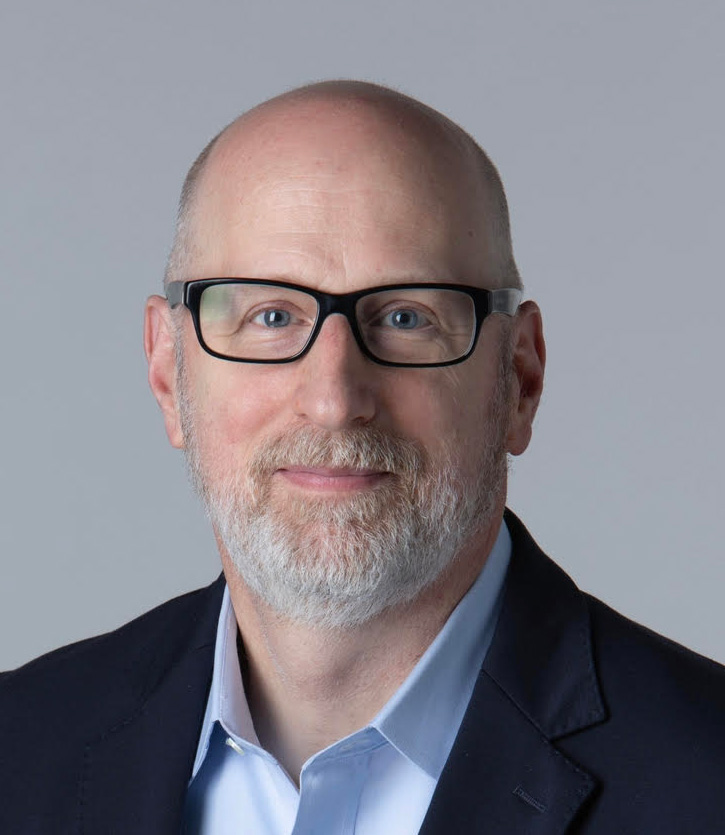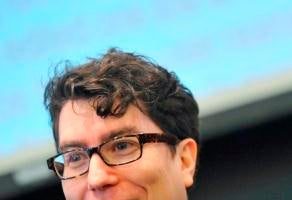
There’s a trust deficit in contemporary media, according to David French, and it often comes from those who are over-opinionated, but under-experienced in exactly what they have opinions on in the first place.
“(It’s important to write from experience) because I feel like there is a tremendous trust deficit in the media. That trust deficit is often created by people who write about things that they have opinions about, but very little experience in,” said French, who first spoke at Chautauqua in 2021. “I try not to stray too far from the things that I’ve had real lived experience in.”
As such, French writes at the intersection of law, culture, religion, and armed conflict. A graduate of Harvard Law and a former lawyer whose practice centered on constitutional law, French is a former major in the U.S. Army Reserve, veteran of Operation Iraqi Freedom — where he was honored with the Bronze Star — and a conservative evangelical Christian. An opinion writer at The New York Times, his most recent book is Divided We Fall: America’s Secession Threat and How to Restore Our Nation.
French, newly named Perry Fellow in Democracy at the Institution, will close the Chautauqua Lecture Series’ Week One theme on “The Evolution of the Modern Presidency” at 10:45 a.m. today in the Amphitheater. He’ll focus on the U.S. President’s role as a moral leader both for America, and for the world.
French co-hosts the podcast “Advisory Opinions” with The Dispatch’s Sarah Isgur, where the two discuss why law and culture matter. “Advisory Opinions” ’s audience include a “large number of judges and lawyers,” French said, who listen and share their own lived experiences. This sincere, good-faith dialogue provides what French describes as virtue ethics, a “needed injection into our national bloodstream.”
“The intensity of our fight over competing beliefs is a source of, essentially, creating a world in which we are abandoning personal virtues whenever we encounter an idea or an ideology that we do not like. It becomes an overwhelming overriding importance to defeat the bad idea,” French said. “What ends up happening is in the quest to defeat the bad idea, with single minded intensity, we often end up becoming malevolent forces ourselves.”
These basic virtues include kindness, openness and humility. The question is, French said, how are those virtues lived and implemented?
“You have to model the values. What did somebody say, as opposed to how they treated their neighbor? What I’m trying to do is get people to analyze and appreciate people based on virtue first before we go to tribe — before we go to ideology,” French said. “One of the things that people in extremes think and deceive themselves with is, ‘Well, I’ll handle division by defeating my enemies.’ That’s how we’ll deal with division: I’m just going to win. But if American history has taught us anything, it is that you actually never fully triumph.”
The way people deceive themselves is an example of negative polarization, which is a tactic used that capitalizes on the hate or fear of the “other side,” French said, and President Donald Trump shrewdly employed hostility and antipathy to his benefit.
“It turns out that people wanted to be outraged more than they wanted to be inspired (in electing Trump). He really scratched that edge of negative polarization,” French said. In thinking about how the presidency has progressed to this point, French points to history — specifically the early years of the Cold War and a rise in “imperial presidency.”
“(The Korean War) is one of the most significant wars that we’ve fought in American history; it was a massive investment in blood and treasure to keep South Korea free,” French said. “I support the decision to intervene to keep South Korea free — we should have — but it’s very interesting because (President Harry) Truman deployed our troops without ever having a congressional vote for authorization. He was ignoring the congressional role of declaring war and amplifying the presidential role of commanding the armed forces.”
More recently, President Joe Biden issued his “Day One” executive order on the Revision of Civil Immigration Enforcement Policies and Priorities — a plan that had failed in Congress.
“The presidency has been increasing in power, which raises the stakes of each presidential election to a destabilizing level. Both sides (of the political spectrum) feel an existential threat due to raised stakes in presidential elections,” French said. “What we’ve done is created an environment with Congress stripping its own powers away, where these elections every four years just carry with them greater and greater emotional and political weight than ever before.”
This extreme polarization has numerous causes. French’s friend Renee DiResta calls them “bespoke realities.” Essentially, he said, that means that everyone is capable of creating their own micro-truths through the invisible algorithm of social media.
“For example, if somebody thinks the 2020 election was stolen, there’s a very good chance that that same person also believes the vaccines are ineffective, and believes that Ukraine provoked the war with Russia,” French said. “Now those three things have nothing to do with each other, but they often go together in a package of beliefs, because within these bespoke realities they’ve created their own sort of lore and mythology. One is perfectly capable of living in these completely bespoke realities created by your own curation of your social media, amplified by the algorithm.”
Algorithmic isolation can create a sense of loneliness and unconnectedness. U.S. Surgeon General Vivek H. Murthy notes there is a loneliness epidemic, which is not only concerning on its face, but because there is a correlation between authoritarianism and a feeling of loneliness.
“What’s happening is people who don’t feel that sense of belonging and love are reaching out and finding friendships in their political faction; these factional friendships depend on political loyalty. That gets very dangerous,” French said. “My best friend groups are not politically uniform. To be in deep, close friendships with people who disagree with me on politics is a blessing.”




